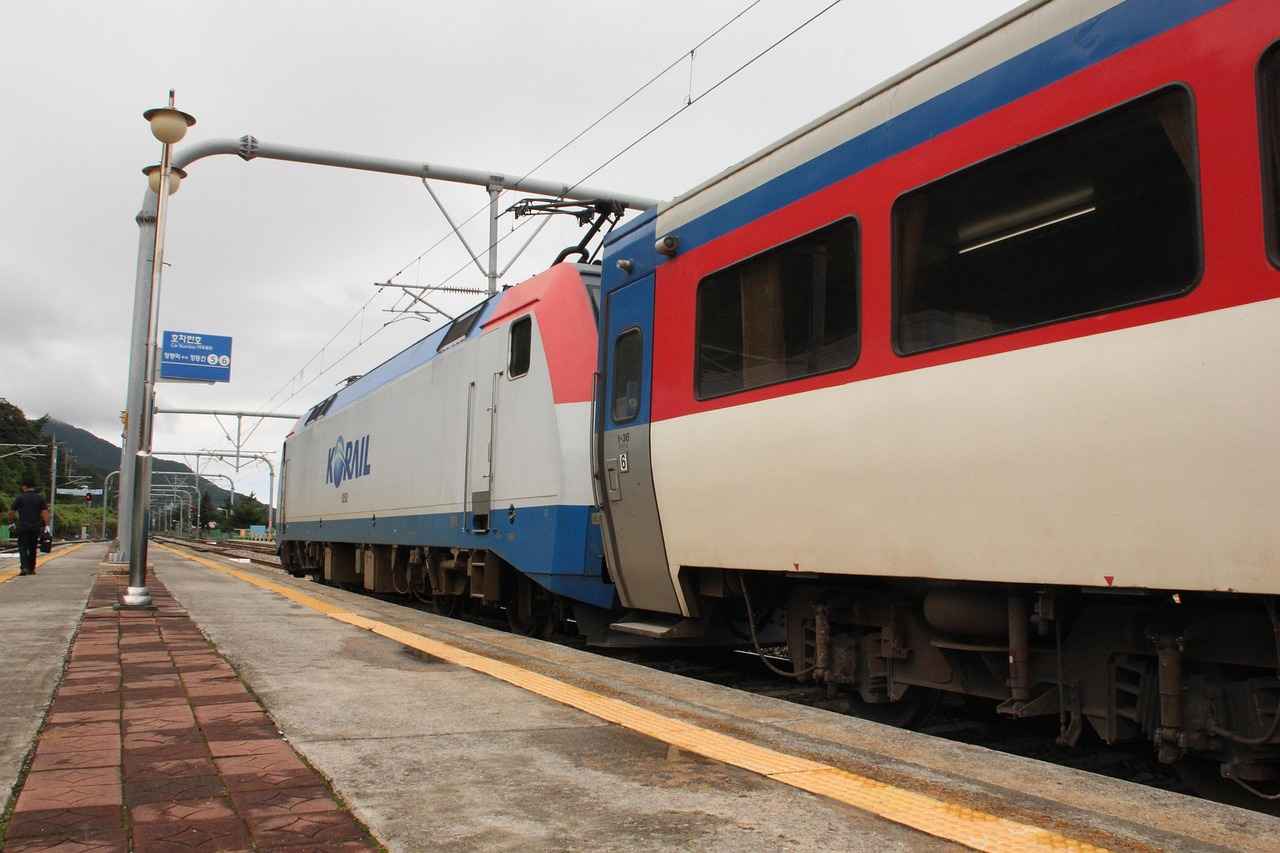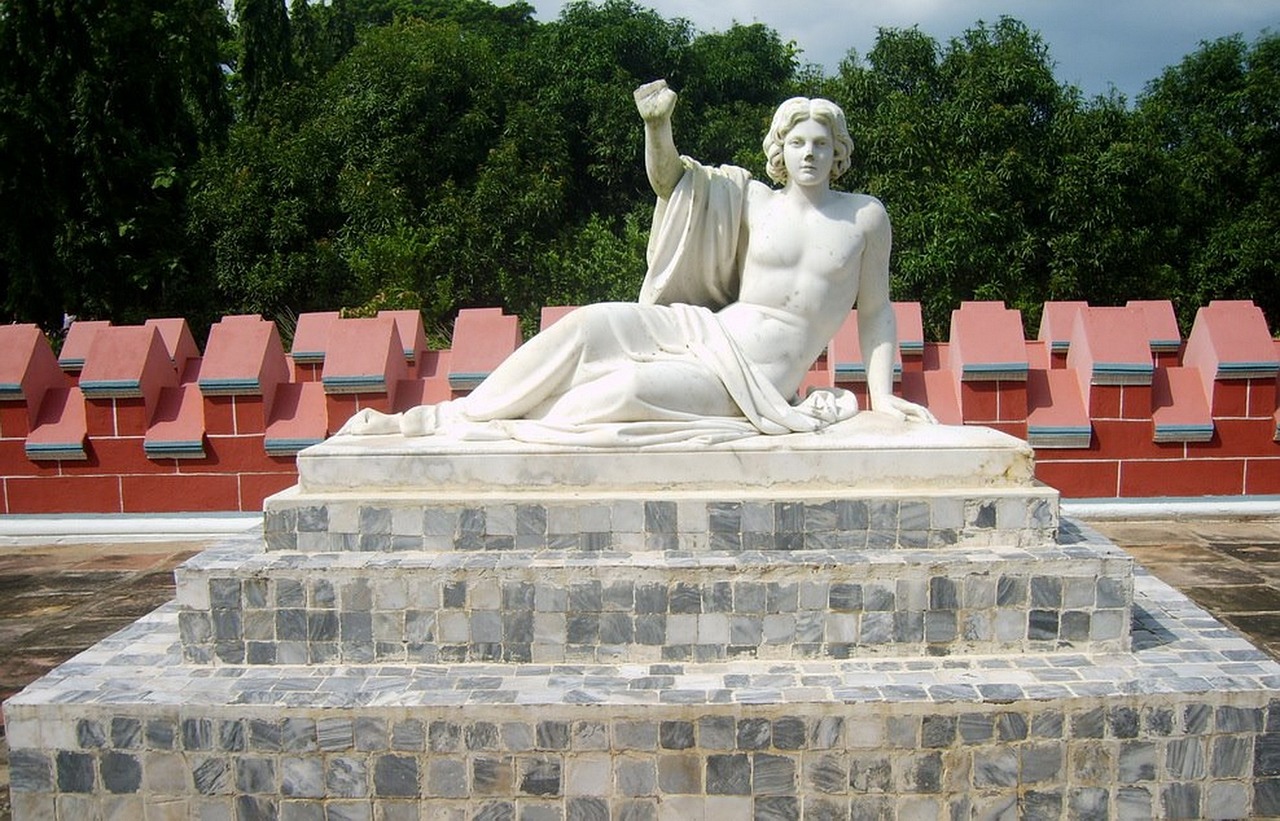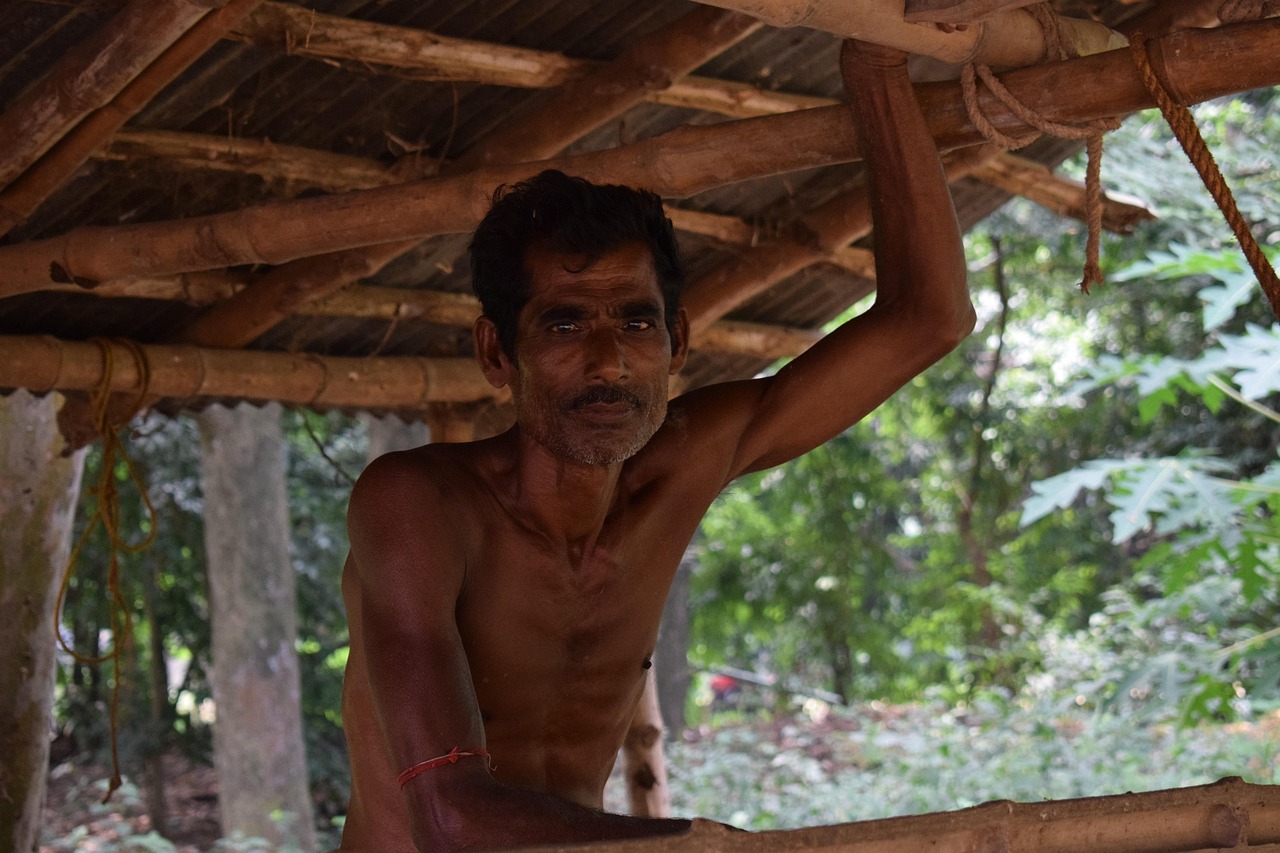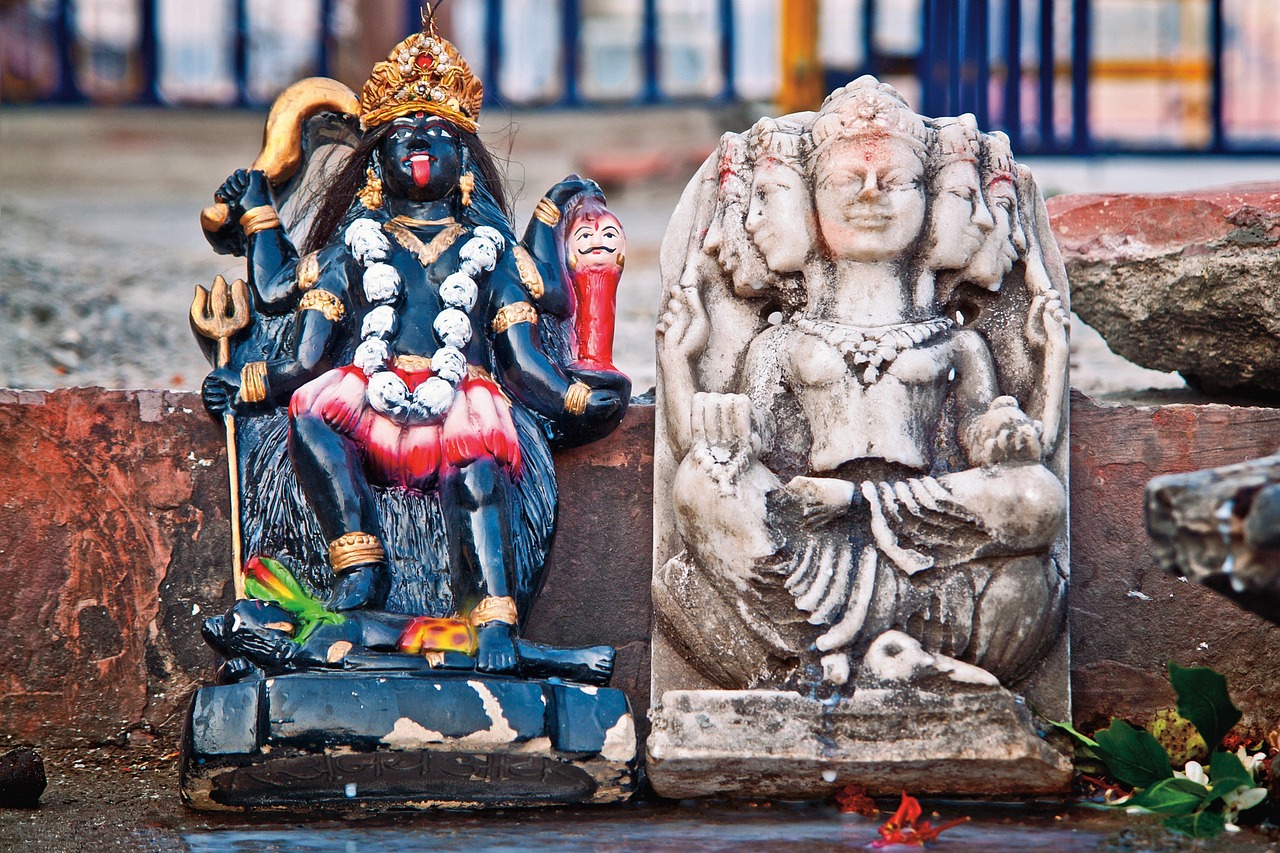This article serves as a comprehensive guide on how to access free medical services in West Bengal. It elaborates on various government initiatives, eligibility criteria, and practical steps to ensure that residents receive the healthcare they need.
Understanding Free Medical Services in West Bengal
In West Bengal, free medical services encompass a wide range of healthcare options aimed at supporting the population’s diverse needs. These services include preventive care, emergency treatments, and specialized medical consultations, ensuring that all residents, regardless of their economic status, have access to essential healthcare.
Government Initiatives for Healthcare
The West Bengal government has launched several programs to enhance public health. These initiatives focus on providing free medical services, particularly to the economically weaker sections of society. Notable programs include:
- West Bengal Health Scheme: This scheme offers comprehensive healthcare coverage, including hospitalization and outpatient services.
- Ayushman Bharat: A national initiative that complements state efforts by providing health insurance to underprivileged families.
Eligibility Criteria for the Health Scheme
To qualify for the West Bengal Health Scheme, applicants must meet specific criteria, such as income limits and residency requirements. It is crucial to understand these conditions to ensure successful enrollment.
How to Apply for the Health Scheme
The application process is straightforward. Interested individuals need to gather necessary documents, such as identity proof and income certificates, and submit them at designated health centers.
Accessing Free Medicines
Access to free medicines is vital for maintaining public health. The government has established various drug distribution programs that ensure residents can obtain essential medications without financial strain.
Challenges in Accessing Free Medical Services
Despite the availability of free medical services, challenges such as lack of awareness and infrastructure issues persist. Educational programs are essential to inform the public about their rights and available healthcare options.
Conclusion: Ensuring Healthcare for All
In conclusion, understanding how to access free medical services in West Bengal is essential for improving public health. By leveraging government initiatives and community resources, residents can secure the care they need.

Understanding Free Medical Services in West Bengal
West Bengal, a state in eastern India, has made significant strides in providing free medical services to its residents. These services are designed to address the diverse healthcare needs of the population, ensuring that even the most vulnerable groups have access to essential medical care. This article delves into the various types of free medical services available, highlighting how they cater to different healthcare needs and promote accessibility for all.
One of the primary avenues for free medical services in West Bengal is through government-run initiatives. The state government has implemented several programs aimed at providing comprehensive healthcare, particularly for low-income families. These programs include:
- West Bengal Health Scheme: This scheme provides free medical treatment for economically disadvantaged individuals, covering hospitalizations, surgeries, and outpatient consultations.
- Chief Minister’s Health Scheme: Aimed at offering health insurance to families below the poverty line, this initiative covers a wide range of medical expenses.
- Free Diagnostic Services: Various public health facilities offer free diagnostic tests, ensuring that patients can receive necessary evaluations without financial strain.
In addition to government initiatives, several non-governmental organizations (NGOs) and charitable organizations operate within the state, providing free medical services. These organizations often focus on specific health issues, such as maternal and child health, mental health, and chronic diseases, offering both treatment and preventive care.
Moreover, community health centers play a crucial role in delivering free medical services across both urban and rural areas. These centers not only provide essential healthcare but also serve as educational hubs, teaching residents about preventive measures and healthy living.
Despite these efforts, challenges remain in ensuring that all residents can access free medical services. Issues such as awareness, infrastructure, and transportation can hinder access, particularly in remote areas. Raising awareness about available services and improving healthcare infrastructure are vital steps towards making healthcare truly accessible for all.
In conclusion, West Bengal’s commitment to providing free medical services is evident through its various initiatives and programs. By addressing the diverse healthcare needs of its population and working to overcome existing challenges, the state is making significant progress towards ensuring that every resident has access to the medical care they deserve.

Government Initiatives for Healthcare
In West Bengal, the government has launched a series of innovative initiatives aimed at enhancing public health through the provision of free medical services. These programs are designed to ensure that healthcare is accessible to all residents, particularly those from economically disadvantaged backgrounds.
Among the prominent initiatives is the West Bengal Health Scheme, which offers comprehensive medical coverage to individuals and families in need. This scheme covers a wide range of medical services, including hospitalizations, surgeries, and outpatient care, ensuring that essential healthcare is available without financial burden.
The government has also introduced various policies that streamline the process of accessing free medical services. These policies focus on improving healthcare infrastructure and increasing the availability of medical professionals in underserved areas. By enhancing facilities in rural and urban health centers, the government aims to provide timely and effective medical care.
To benefit from these programs, residents must meet specific eligibility criteria, which are designed to prioritize those most in need. The application process is straightforward, often requiring basic documentation to verify income and residency status. This transparency helps to ensure that the services reach the intended beneficiaries.
In addition to government efforts, collaborations with non-governmental organizations (NGOs) and private healthcare providers play a vital role in expanding access to free medical services. These partnerships facilitate outreach programs, health camps, and awareness drives, which are essential for educating the public about available healthcare options.
Overall, the initiatives and policies implemented by the West Bengal government reflect a strong commitment to enhancing public health. By providing free medical services, the state aims to create a healthier society where all residents can access the care they need without financial constraints.
West Bengal Health Scheme
The stands as a pivotal initiative by the state government, designed to offer free healthcare services to the economically weaker sections of society. This program aims to alleviate the financial burden of medical expenses and ensure that essential healthcare is accessible to all, particularly those who may struggle to afford it.
Under this scheme, a wide array of medical treatments and consultations is covered, including but not limited to:
- Inpatient care in government hospitals
- Outpatient consultations
- Diagnostic tests and procedures
- Surgical interventions
- Medicines and follow-up care
To qualify for the West Bengal Health Scheme, applicants must meet specific eligibility criteria. These criteria are primarily aimed at identifying individuals and families who fall under the economically weaker sections. It is crucial for potential beneficiaries to gather necessary documentation, such as income certificates and identification proofs, to facilitate a smooth application process.
Applying for the West Bengal Health Scheme can be done through designated government offices or online platforms, ensuring accessibility for all applicants. The government has made significant strides in simplifying the application process, allowing individuals to receive timely healthcare services.
In addition to the West Bengal Health Scheme, several other government health programs exist, each targeting various health issues and providing free or subsidized services to residents. This holistic approach ensures that a broader spectrum of healthcare needs is addressed, promoting overall public health in the state.
In conclusion, the West Bengal Health Scheme is a commendable initiative that plays a vital role in providing necessary medical care to those in need. By understanding the application process and eligibility requirements, residents can take advantage of this valuable resource, ensuring that healthcare is a right, not a privilege.
Eligibility Criteria for the Health Scheme
Understanding the eligibility requirements for the West Bengal Health Scheme is crucial for individuals looking to access free medical services. This scheme is designed to assist those from economically weaker sections of society, ensuring that healthcare is accessible to everyone in need.
To qualify for the West Bengal Health Scheme, applicants must meet specific criteria. Below are the key eligibility requirements:
- Income Limit: The applicant’s annual income must fall below a certain threshold, which is determined by the state government. This ensures that the benefits are directed towards those who truly need assistance.
- Residency: Applicants must be residents of West Bengal. Proof of residency, such as a government-issued ID or utility bill, may be required.
- Age and Health Status: The scheme primarily targets vulnerable populations, including children, elderly individuals, and those with chronic health conditions. Specific health assessments may be necessary to confirm eligibility.
- Documentation: Applicants must provide relevant documents, including identity proof, income certificates, and any medical records that support their health needs.
Once eligibility is confirmed, individuals can access a wide range of medical services, from basic consultations to advanced treatments, all at no cost. This initiative not only alleviates the financial burden on families but also promotes overall public health.
In conclusion, understanding the eligibility criteria for the West Bengal Health Scheme is essential. By ensuring you meet these requirements, you can take full advantage of the healthcare services available, leading to better health outcomes for you and your family.
How to Apply for the Health Scheme
The West Bengal Health Scheme is designed to provide essential medical services to economically weaker sections of society. To ensure a seamless application process, it is crucial for applicants to understand the necessary steps and documentation required.
Step-by-Step Application Process
- Eligibility Check: Before applying, ensure you meet the eligibility criteria set by the government. This typically includes income limits and residency requirements.
- Gather Required Documents: Collect all necessary documents, which may include:
- Proof of identity (Aadhar card, voter ID, etc.)
- Income certificate
- Residential proof (ration card, utility bills, etc.)
- Medical history, if applicable
- Fill Out the Application Form: Obtain the application form from the official website or local health department. Ensure all information is accurate and complete.
- Submit the Application: Submit your application along with the required documents at the designated health office. It’s advisable to keep copies of all submitted documents.
- Follow Up: After submission, keep track of your application status. You may need to visit the office for any additional information or clarification.
Tips for a Smooth Application Experience
- Apply early to avoid last-minute rushes.
- Ensure all documents are up-to-date and valid.
- Seek assistance from local health workers if you face difficulties.
By following these steps and preparing the necessary documents, applicants can navigate the application process for the West Bengal Health Scheme with ease, ensuring they receive the healthcare services they need.
Other Government Health Programs
In addition to the West Bengal Health Scheme, there are several other government health programs that aim to address specific health challenges faced by the residents of West Bengal. These initiatives are designed to provide free or subsidized healthcare services, ensuring that vulnerable populations have access to essential medical care.
- Ayushman Bharat Scheme: This national health protection scheme offers coverage for secondary and tertiary hospitalization for economically disadvantaged families. It aims to provide a safety net for those who may not afford high medical expenses.
- Kanyashree Prakalpa: Aimed at improving the health and well-being of young girls, this program provides financial assistance to ensure that they receive necessary healthcare services, thus promoting their overall development.
- Shishu Sathi Scheme: This initiative focuses on maternal and child health, providing free medical services to pregnant women and newborns. It ensures that mothers receive adequate care during and after pregnancy.
- Rashtriya Swasthya Bima Yojana (RSBY): This scheme provides health insurance coverage to families living below the poverty line, covering hospitalization costs for various diseases and medical conditions.
- National Health Mission (NHM): The NHM aims to strengthen rural healthcare delivery, focusing on maternal and child health, communicable diseases, and health infrastructure in underserved areas.
These programs work in tandem with the West Bengal Health Scheme to create a comprehensive healthcare framework that addresses diverse health issues. By offering targeted assistance, these initiatives ensure that residents can access necessary medical services without financial strain.
To effectively utilize these programs, residents should stay informed about eligibility criteria and application processes. Local health authorities and community health centers can provide guidance and support to help individuals navigate these resources.
In conclusion, the array of government health programs available in West Bengal reflects a commitment to enhancing public health and ensuring that every resident has access to quality medical care. By understanding and leveraging these initiatives, individuals can significantly improve their health outcomes.

Private Healthcare Options
in West Bengal play a vital role in enhancing the availability of free medical services for the community. Through strategic partnerships with government initiatives, private healthcare facilities are able to extend their support and resources, ensuring that essential healthcare is accessible to all.
Many private hospitals and clinics collaborate with government programs to offer complimentary medical services. These partnerships not only help in reducing the financial burden on patients but also contribute to the overall healthcare infrastructure in the region. By participating in government schemes, private facilities can provide a wider range of treatments and specialized care.
| Private Healthcare Facility | Government Initiative | Services Offered |
|---|---|---|
| ABC Hospital | West Bengal Health Scheme | General consultations, surgeries, and maternity care |
| XYZ Clinic | Rural Health Program | Preventive care, immunizations, and health education |
Moreover, these private entities often engage in community outreach programs, providing health camps and awareness sessions to educate the public about available healthcare options. This proactive approach not only enhances the community’s health literacy but also encourages individuals to seek medical help when needed.
- Access to Specialized Care: Private facilities often have advanced technology and specialists that are not available in public hospitals.
- Shorter Wait Times: Patients may experience quicker access to services, reducing the burden on public healthcare systems.
- Enhanced Patient Experience: Private healthcare often focuses on improved patient care and comfort, leading to better overall satisfaction.
In conclusion, the collaboration between private healthcare providers and government initiatives in West Bengal is essential for ensuring that free medical services are not only available but also effective. By leveraging these partnerships, the community can benefit from a more robust healthcare system that addresses the diverse needs of its residents.
Insurance Coverage for Medical Services
Many residents may not be aware that certain insurance policies can cover free medical services, making it essential to understand how to leverage these benefits effectively. This knowledge can significantly enhance access to healthcare, especially in regions where medical facilities are limited.
Understanding the intricacies of insurance coverage for medical services can empower individuals to seek the care they need without the burden of high costs. Here, we will explore how various insurance plans can provide access to free medical services and the steps to take advantage of these offerings.
| Type of Insurance | Coverage Details |
|---|---|
| Government Insurance Schemes | Often cover a wide range of medical services, including hospital stays, outpatient care, and preventive services. |
| Private Health Insurance | May offer additional benefits such as coverage for specialized treatments and access to private healthcare facilities. |
| Employer-Sponsored Plans | Typically include comprehensive health coverage, which can encompass free medical services through partnerships with local clinics. |
To effectively utilize these insurance benefits, individuals should:
- Review Policy Details: Understand what services are covered under your plan.
- Contact Insurance Providers: Reach out to your provider for clarification on coverage and eligibility.
- Keep Documentation Handy: Maintain records of your insurance policy and any medical services received.
Furthermore, it is advisable to stay informed about any changes in policy or new government initiatives that may expand coverage options. By actively engaging with your insurance provider and understanding the landscape of available medical services, you can ensure that you are making the most of the healthcare resources at your disposal.
In conclusion, recognizing and utilizing insurance coverage for free medical services can lead to improved health outcomes and reduced financial stress. It is crucial for residents to be proactive in understanding their options and advocating for their healthcare needs.
Charitable Organizations and NGOs
Charitable Organizations and NGOs in West BengalIn West Bengal, a multitude of charitable organizations and non-governmental organizations (NGOs) are dedicated to providing free medical services to those in need. These organizations serve as a crucial lifeline for individuals who may not qualify for government health programs or who prefer the personalized care that private assistance can offer.
These NGOs often operate in collaboration with local communities, ensuring that healthcare services are accessible to the most vulnerable populations. They provide a range of services, including:
- General Health Check-ups: Regular health check-ups to monitor and maintain the overall health of individuals.
- Specialized Medical Care: Access to specialized treatments for chronic illnesses, mental health support, and maternal care.
- Health Education: Workshops and seminars aimed at educating communities about health issues, hygiene practices, and preventive measures.
- Mobile Health Clinics: Outreach programs that bring medical services directly to underserved areas, ensuring that even the remotest communities receive care.
Many of these organizations rely on donations and volunteer support to sustain their operations. They often organize health camps and awareness programs, where qualified medical professionals offer their services free of charge. This not only helps in treating patients but also raises awareness about various health issues prevalent in the region.
Moreover, these NGOs often provide essential medications at no cost, alleviating the financial burden on families struggling with health issues. They play a pivotal role in promoting health equity by ensuring that everyone, regardless of their economic status, has access to necessary medical services.
In conclusion, the presence of charitable organizations and NGOs in West Bengal significantly enhances the healthcare landscape, offering vital services to those who might otherwise go without. Their commitment to community health is an indispensable resource, fostering a healthier society.
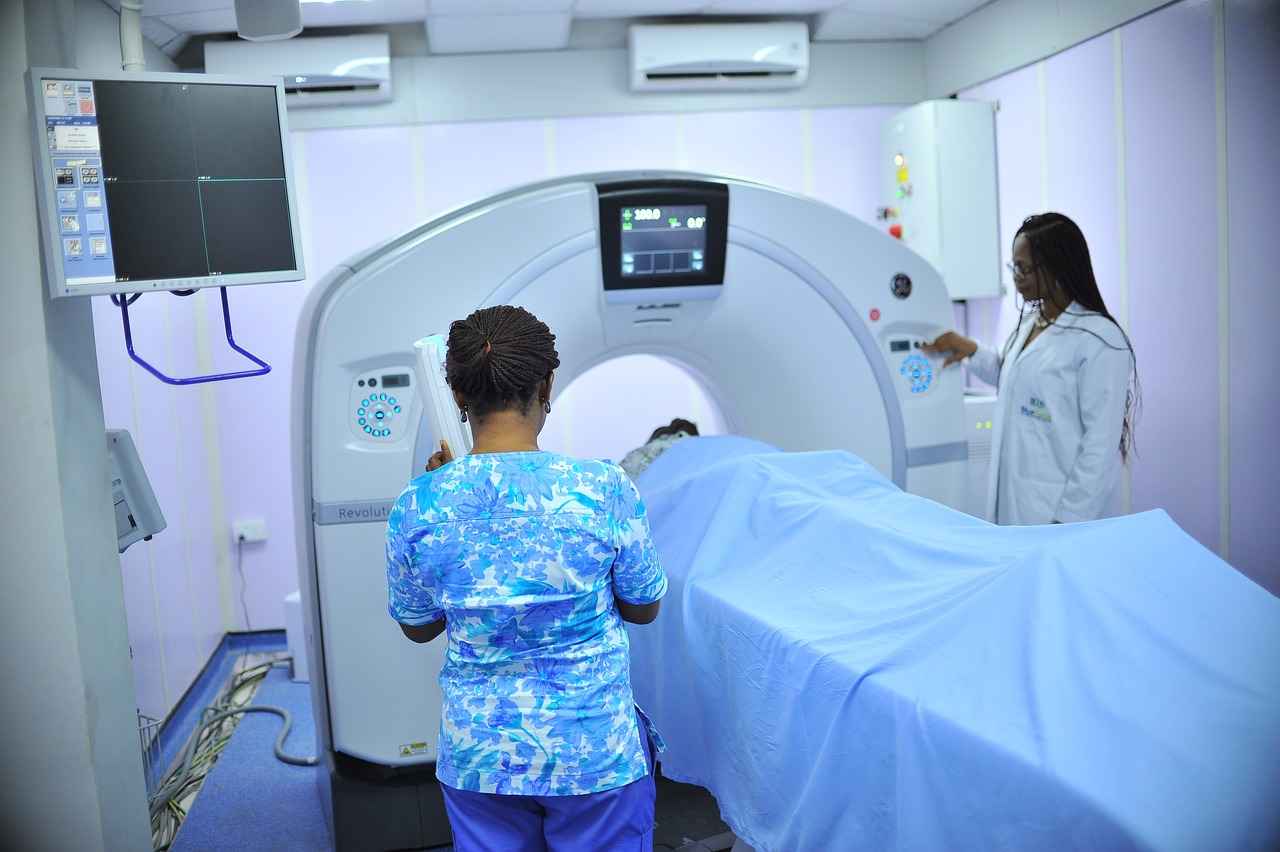
Accessing Free Medicines
is crucial for ensuring that all residents of West Bengal can receive necessary treatments without the burden of financial strain. This section outlines how individuals can obtain essential medications at no cost, highlighting various programs and resources available across the state.
The government of West Bengal has implemented several initiatives aimed at providing free medicines to its residents. One of the primary programs is the West Bengal Drug Distribution Scheme, which ensures that essential medicines are available at no cost to those in need. This program is particularly beneficial for economically disadvantaged communities, allowing them to access life-saving medications without financial barriers.
- Eligibility Criteria: To qualify for free medicines under this scheme, residents typically need to provide proof of income or demonstrate their economic status. This ensures that the assistance reaches those who require it the most.
- How to Access Medicines: Residents can visit designated government health facilities or community health centers where these medicines are distributed. It is advisable to carry necessary identification and documents to facilitate the process.
In addition to government programs, community health centers play a vital role in providing free access to medicines. These centers are strategically located to serve both urban and rural populations, ensuring that essential health services are within reach for everyone.
Moreover, many non-governmental organizations (NGOs) and charitable organizations in West Bengal also contribute to the availability of free medicines. These organizations often collaborate with government initiatives to widen the reach of healthcare services, providing additional support to those who may not qualify for government programs.
In conclusion, accessing free medicines in West Bengal is facilitated through a network of government initiatives, community health centers, and NGOs. By understanding the available resources and eligibility criteria, residents can obtain the medications they need without facing financial hardship. It is essential for the community to stay informed about these services to ensure that everyone can lead a healthier life.
Government Drug Distribution Programs
play a crucial role in ensuring that all residents have access to essential medications without facing financial barriers. In West Bengal, these programs have been designed to address the healthcare needs of the population, particularly for those from economically disadvantaged backgrounds.
The government has implemented various initiatives to facilitate the distribution of free medicines. These programs are not only vital for treating chronic illnesses but also for managing acute medical conditions that require immediate attention. By providing free access to essential drugs, the government seeks to enhance overall public health and reduce the burden of healthcare costs on families.
| Program Name | Description | Eligibility Criteria |
|---|---|---|
| West Bengal Drug Distribution Scheme | Offers free essential medicines at government hospitals and health centers. | Residents of West Bengal, particularly those from low-income families. |
| Free Medicine Distribution Program | Ensures the availability of free medicines for specific diseases such as diabetes and hypertension. | Patients diagnosed with the respective diseases. |
To access these programs, residents can visit their nearest community health centers or government hospitals. It is advisable to carry valid identification and any relevant medical prescriptions to facilitate the process. The staff at these facilities are trained to guide individuals through the necessary steps to obtain their medications.
Moreover, awareness campaigns are being conducted to inform the public about these initiatives. These campaigns aim to educate individuals about their rights to free healthcare and the importance of utilizing available resources. By increasing awareness, the government hopes to encourage more people to take advantage of these programs, ultimately improving health outcomes across the state.
In conclusion, the in West Bengal are essential for promoting public health. By ensuring free access to necessary medicines, these initiatives help alleviate the financial burden on families and contribute to a healthier community.
Community Health Centers
are essential components of the healthcare system, providing a wide array of services to individuals in both urban and rural settings. These centers are designed to offer free medical services and essential medications, ensuring that healthcare is accessible to all, particularly those from economically disadvantaged backgrounds.
One of the primary functions of is to serve as local points of care. They address various health needs, including preventive care, chronic disease management, and maternal and child health services. By offering these services at no cost, they play a crucial role in promoting public health and reducing health disparities.
In addition to medical services, community health centers often provide health education and outreach programs, helping residents understand their health needs and available resources. This proactive approach not only improves health outcomes but also fosters a sense of community engagement and empowerment.
- Accessibility: Community health centers are strategically located to ensure that residents can easily access healthcare services.
- Comprehensive Services: They offer a range of services, including dental care, mental health support, and substance abuse treatment.
- Affordable Care: Many centers operate on a sliding fee scale, ensuring that no one is turned away due to inability to pay.
Moreover, these centers often collaborate with local organizations and government initiatives, enhancing the resources available to the community. This partnership approach helps to address the broader social determinants of health, such as housing, education, and nutrition.
In conclusion, are vital in ensuring that all individuals have access to necessary medical services and medications. By focusing on affordability and accessibility, they contribute significantly to the overall health and well-being of the population, making healthcare a right for everyone, not a privilege.

Challenges in Accessing Free Medical Services
Despite the various initiatives established by the government of West Bengal to provide free medical services, numerous challenges continue to hinder effective access for residents. This section delves into the most common barriers faced by individuals seeking healthcare and suggests potential solutions to overcome these obstacles.
- Awareness and Education: A significant barrier to accessing free medical services is the lack of awareness among residents. Many individuals are unaware of the available programs or the eligibility criteria. Educational campaigns and community outreach programs can play a vital role in informing the public about their rights and the services they can access.
- Infrastructure and Accessibility Issues: In rural and remote areas, inadequate healthcare infrastructure is a pressing concern. Many residents face challenges due to poorly maintained roads, limited transportation options, and a shortage of healthcare facilities. Investing in infrastructure improvements and establishing more community health centers can enhance accessibility.
- Stigma and Social Barriers: Stigma associated with seeking medical help can deter individuals from accessing necessary services. Social norms and cultural beliefs may prevent people from utilizing available healthcare options. Addressing these social barriers through community engagement and support programs is essential.
- Long Wait Times and Overcrowding: Many government hospitals and clinics experience overcrowding, leading to long wait times for patients. This can discourage individuals from seeking care. To mitigate this issue, increasing the number of healthcare providers and optimizing patient flow can help reduce wait times.
- Financial Constraints: Although services are advertised as free, hidden costs such as transportation and medication may pose financial challenges. Ensuring that all necessary services, including transportation and follow-up care, are covered can alleviate this burden.
In conclusion, addressing these challenges requires a multi-faceted approach involving collaboration between government bodies, healthcare providers, and the community. By implementing targeted solutions, the accessibility of free medical services in West Bengal can be significantly improved, ensuring that all residents receive the healthcare they deserve.
Awareness and Education
play a pivotal role in ensuring that residents of West Bengal are informed about their healthcare rights and the free medical services available to them. Despite the various government initiatives aimed at providing healthcare, many individuals remain unaware of their entitlements, which can lead to missed opportunities for essential medical care.
To address this issue, it is essential to implement educational programs that focus on disseminating information about healthcare services. These programs should be tailored to meet the diverse needs of the community, utilizing various platforms such as workshops, community meetings, and digital media to reach a wider audience. By engaging local leaders and health professionals, these initiatives can foster trust and encourage participation.
Furthermore, collaboration with schools can also be a powerful strategy. Incorporating health education into school curriculums can equip young individuals with knowledge about their rights and available healthcare options from an early age. This proactive approach can create a generation that is more aware and empowered to seek medical assistance when needed.
Moreover, utilizing social media and other digital platforms can amplify the reach of these educational efforts. Informative posts, videos, and infographics can be created to share vital information about healthcare services, eligibility criteria, and application processes in an engaging manner. This approach not only informs but also encourages community interaction and feedback.
| Method of Awareness | Description |
|---|---|
| Workshops | Community-based sessions to educate residents about healthcare services. |
| School Programs | Incorporating health education in school curriculums. |
| Social Media Campaigns | Using digital platforms to share information and engage the community. |
In conclusion, raising awareness and providing education about available healthcare services is not just beneficial but necessary. By empowering individuals with knowledge, we can ensure that everyone in West Bengal has the opportunity to access the medical care they deserve. Through concerted efforts and community involvement, we can bridge the gap between healthcare services and the people who need them the most.
Infrastructure and Accessibility Issues
Accessing healthcare in remote areas of West Bengal presents significant challenges, primarily due to inadequate infrastructure and limited transportation options. These obstacles can severely limit the ability of residents to seek necessary medical attention, leading to a disparity in health outcomes compared to urban populations.
Many regions in West Bengal, particularly in rural settings, lack sufficient healthcare facilities. Often, the nearest hospital or clinic is located miles away, and without reliable transportation, individuals may find it difficult to reach these essential services. This situation becomes even more critical during emergencies when timely medical intervention is crucial for saving lives.
Moreover, the existing healthcare facilities in remote areas may not be equipped with the necessary resources or staff to handle various medical needs. This inadequacy can lead to overcrowding in urban hospitals, as patients from rural areas flock to cities in search of better healthcare options, further straining urban healthcare systems.
Transportation Options
- Public Transport: Many remote areas have limited public transport services, making it difficult for residents to travel to healthcare facilities.
- Community Initiatives: Some local organizations have started community transport services to help residents reach clinics and hospitals.
- Mobile Health Units: The introduction of mobile health units can bridge the gap by bringing healthcare services directly to the communities.
To address these infrastructure challenges, it is essential for the government and private sectors to collaborate on building and upgrading healthcare facilities. This includes ensuring that roads leading to healthcare centers are well-maintained and accessible. Additionally, improving public transport options can significantly enhance accessibility, allowing residents to seek medical help when needed.
In conclusion, overcoming infrastructure and accessibility issues is vital for ensuring that all residents of West Bengal can access the healthcare services they require. By investing in better facilities and transportation options, the state can significantly improve health outcomes and ensure that no one is left behind in their healthcare journey.

Conclusion: Ensuring Healthcare for All
In summary, gaining a thorough understanding of how to access free medical services in West Bengal is vital for enhancing the overall public health landscape. The state government has launched various initiatives aimed at ensuring that every resident has access to necessary healthcare services without the burden of financial constraints. These programs are designed to cater to diverse needs, addressing everything from basic consultations to more specialized treatments.
By leveraging these government initiatives, residents can significantly improve their health outcomes. For instance, the West Bengal Health Scheme offers comprehensive coverage for economically disadvantaged individuals, ensuring they receive essential medical care. Furthermore, community health centers play a crucial role in bridging the gap between urban and rural healthcare, providing free services and medications to those who need them the most.
Additionally, awareness and education about these available services are paramount. Many individuals remain unaware of their eligibility for various programs, which can lead to missed opportunities for receiving critical healthcare. Thus, public health campaigns aimed at educating residents about their rights and available resources can help empower them to seek the care they require.
Moreover, challenges such as infrastructural limitations and accessibility issues must be addressed to ensure that these services reach every corner of the state. Improving transportation options and healthcare facilities in remote areas will be essential in overcoming these barriers.
Ultimately, by actively engaging with government initiatives and community resources, residents of West Bengal can secure the healthcare they need, fostering a healthier and more informed population. It is crucial for all stakeholders to work together to enhance the accessibility and quality of medical services, ensuring that no one is left behind in their quest for health.
Frequently Asked Questions
- What types of free medical services are available in West Bengal?
West Bengal offers a variety of free medical services, including hospital treatments, outpatient consultations, and essential medications. These services aim to cater to different healthcare needs, ensuring that everyone has access to necessary care.
- How can I apply for the West Bengal Health Scheme?
Applying for the West Bengal Health Scheme is straightforward. You need to gather required documents such as proof of income and residency, and then submit your application at designated health centers or online through the official government portal.
- Are there any eligibility criteria for free medical services?
Yes, eligibility criteria vary depending on the specific program. Generally, economically weaker sections and those without insurance coverage are prioritized. It’s essential to check the requirements for each scheme to know if you qualify.
- What role do charitable organizations play in providing medical services?
Charitable organizations and NGOs in West Bengal play a crucial role by offering free medical services and support, especially for those who may not qualify for government programs. They often provide additional resources and outreach to underserved communities.
- How can I access free medicines in West Bengal?
Residents can access free medicines through government drug distribution programs and community health centers. These initiatives ensure that essential medications are available without financial burden, promoting better public health.































